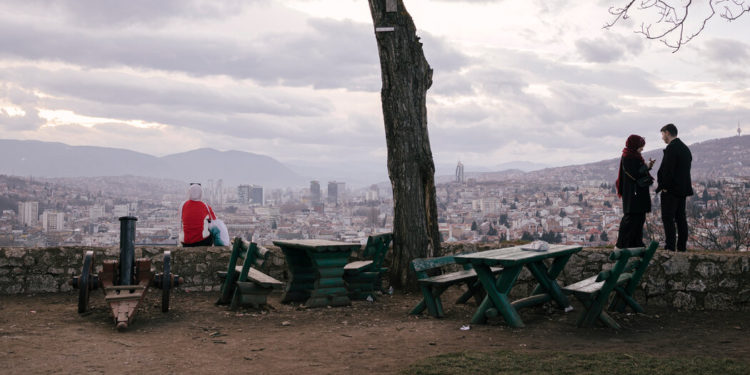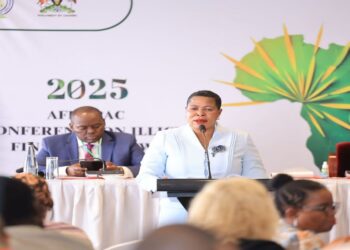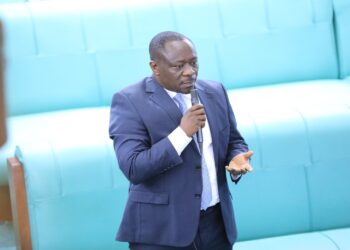By THE NEW YORK TIMES
When the Bosnian sheep farmer fled his home in a disintegrating Yugoslavia in 1992, trekking with his family for 40 days to escape the start of a war that would pit neighbor against neighbor, the village he left behind had more than 400 people, two shops and a school.
More than half the villagers were fellow Muslims, the rest Serbs, but nobody, he said, paid much attention to that until extremist politicians started screaming for blood.
After more than a decade away from his home in eastern Bosnia, the farmer, Fikret Puhalo, 61, returned to his village, Socice. By then it had 100 or so people, Serbs who had stayed throughout and a few Muslims who had decided it was safe to go back.
Today, only 15 are left. The shops have gone, the school, too.
“Everyone else died or moved away,” said Mr. Puhalo, gesturing to empty homes scattered across the rocky hills around the family land where he grazes his sheep. “Not a single child has been born here since I returned,” he said.
The withering away of Socice mirrors a worldwide phenomenon of poor farming areas losing people to urban centers. It is also part of a grave demographic crisis afflicting wide swathes of Eastern and Central Europe, including relatively prosperous countries like Poland and Hungary, as low-birth rates and emigration reduce the number of people — and fuel ethnonationalist politicians who clamor against the dilution, even extinction, of native populations.
In countries like Hungary, nationalists, warning that their own people risk fading away and being replaced by outsiders, have fulminated against immigrants, despite severe labor shortages. They have also promoted mostly futile state-funded programs aimed at prodding local women to have more children.
Nowhere, however, have demography and the politics around it been as fraught as in Bosnia, a small, ethnically fractured nation. Like many poorer countries, it has a high rate of emigration, which surged during the 1992-95 war. But it also has an extremely low birthrate, a phenomenon usually associated with richer countries.
In Socice, the population has shrunk more steeply during the past 20 years, which have been entirely peaceful, than during the Bosnian war.
In a graveyard at the village mosque, rebuilt from ruins left by the war, a dirt mound contains the body of Faris Suljanic, who emigrated for work in Austria, where he died, aged 27, in a traffic accident in 2021.
Up a dirt track from Mr. Puhalo’s land is the derelict home of Veljko Samardzija, who died unmarried several years ago, leaving the house littered with his few belongings — a dog-eared Yugoslav passport, fading family photos, a small refrigerator and a bulky television set. Mr. Samardzija’s two female cousins died in a nearby house, also unmarried and childless.
Bosnia’s fertility rate — the number of live births per woman — is one of the lowest in Europe, partly because so many women of childbearing age have left. It’s just ahead of that of Malta, which has twice the average monthly salary.
“The situation is desperate,” said Nebojsa Vukanovic, an elected member of the local Parliament for the Republika Srpksa, the largely self-governing, Serb-dominated area of Bosnia in which Mr. Puhalo has his family home and sheep.
The number of people who live in the Serb region is not known: The last census, taken in 2013, put it at just over one million. Mr. Nebojsa — an outspoken critic of the area’s authoritarian leader, Milorad Dodik, who claims that his region has 1.4 million people — believes the number is now down to 800,000 or less.
Mr. Dodik “manipulates the numbers to pretend he is doing a good job,” Mr. Nebojsa said.
A belligerent and deeply corrupt Serb nationalist, Mr. Dodik has repeatedly threatened to declare his territory an independent state and break up Bosnia, stoking ethnic nationalism to cement his grip on power and avoid prosecution.
To help spread his message that the Serb region is dwindling away, Mr. Vukanovic recently released a bleak video of a visit he made to the municipality of Ulog. It had over 7,000 people when it was part of Yugoslavia, a peaceful multiethnic nation that imploded into war in 1991. Now, he said in an interview, it has just seven year-round residents, its streets lined with crumbling buildings destroyed not by armed conflict but by neglect.
Michael Murphy, the United States ambassador to Bosnia and a frequent critic of Mr. Dodik, points to demographic woes as proof of his misrule of the Republika Srpska, known as R.S.
“If shrinking the R.S. is Mr. Dodik’s goal, he is succeeding,” Mr. Murphy said in an October statement, citing figures showing that the Serb entity’s labor force had shrunk 10 percent in a single year.
The second component part of Bosnia, a Croat-Muslim federation, has also lost large numbers of people. Mainly Croat areas of the federation — where most residents have passports from neighboring Croatia, a member of the European Union, and can freely travel and work across the bloc — have been hit particularly hard by the exodus.
“It is evident that people are leaving all parts of the country,” said Emir Kremic, the director general of Bosnia’s state statistics agency.
But how many have gone, he said, is not known with any precision, in a large part because it is not clear how many people remain. “We just don’t know how many people there are living here,” he said. For that, he added, “We need a new census.”
That, however, is not something ethnonationalist politicians, fearful of the results, want. Bosnia’s three main ethnic groups — Muslim Bosniaks, Orthodox Christian Serbs and Roman Catholic Croats — each worry about losing out in the numbers game. It took three years of wrangling after the 2013 census for the results to be released, because each group wanted to see bigger numbers, and therefore more political clout, for its own community.
Mr. Kremic said that a rough guide to how much the population had dropped was a study conducted last year by his Institute of Statistics to assess usage of Bosnia’s farmland. It found that 30 percent of the farming households recorded during the 2013 census had disappeared.
“There was nobody there anymore,” he said.
The last census put Bosnia’s total population at 3.5 million, down from 4.4 million in the previous count, a year before war broke out. According to some estimates, the number is now under two millionyear-round residents. The Vienna Institute for Demography calculated that from 1990 to 2017, Bosnia suffered a 22 percent population decline largely due to emigration, the steepest drop in the region.
The national birthrate has fallen continuously since 1999 and, after a brief spurt of postwar returns, emigration has again picked up, contributing to what a report by Bosnia’s Academy of Sciences called a “demographic winter” driven by economic concerns and a “collective depression” over the country’s prospects.
At the University of Sarajevo, in the country’s capital, students are divided about whether to stay or leave. Some, especially those from well-connected families, see no reason to risk emigrating. Others are despondent about their chances if they stay.
Enis Katina, a criminology student, said he would like to get work in Bosnia’s police force but sees “no real perspective for young people in this country.” Leaving, he added, “is the only future we have.”
Muris Cicic, the head of the Academy of Sciences and a co-author of its report, said Bosnia was not as hopeless as many residents, particularly young people, believe but was still beset by gloom about the future because of constant bickering by a political elite widely seen as corrupt and self-serving.
“Political instability is the main driver pushing people to leave or think about leaving,” Mr. Cicic said. A return to war, he added, was highly unlikely, but fear of that, stoked by Bosnia’s highly partisan news media and incendiary statements by politicians like Mr. Dodik has left many in a state of despair.
“The system here is unworkable, and everything looks so hopeless,” he said.
Among those despondent about their country’s prospects is Eldin Hadzic, a 40-year-old mechanic who fled to Germany in the early 1990s to escape the war, returned in 1998 and is now determined to leave again. He traveled recently from his home in Sipovo to Sarajevo to visit a private visa agency selling advice on how to get out.
“Anybody with a little bit of intelligence has to leave,” Mr. Hadzic said, cursing all politicians, regardless of ethnicity, as crooks. “They are all the same, just after their own personal interests,” he said. “To make your dreams come true in Bosnia, you have to be a thief.”
Una Regoje in Sarajevo contributed reporting.








Discussion about this post